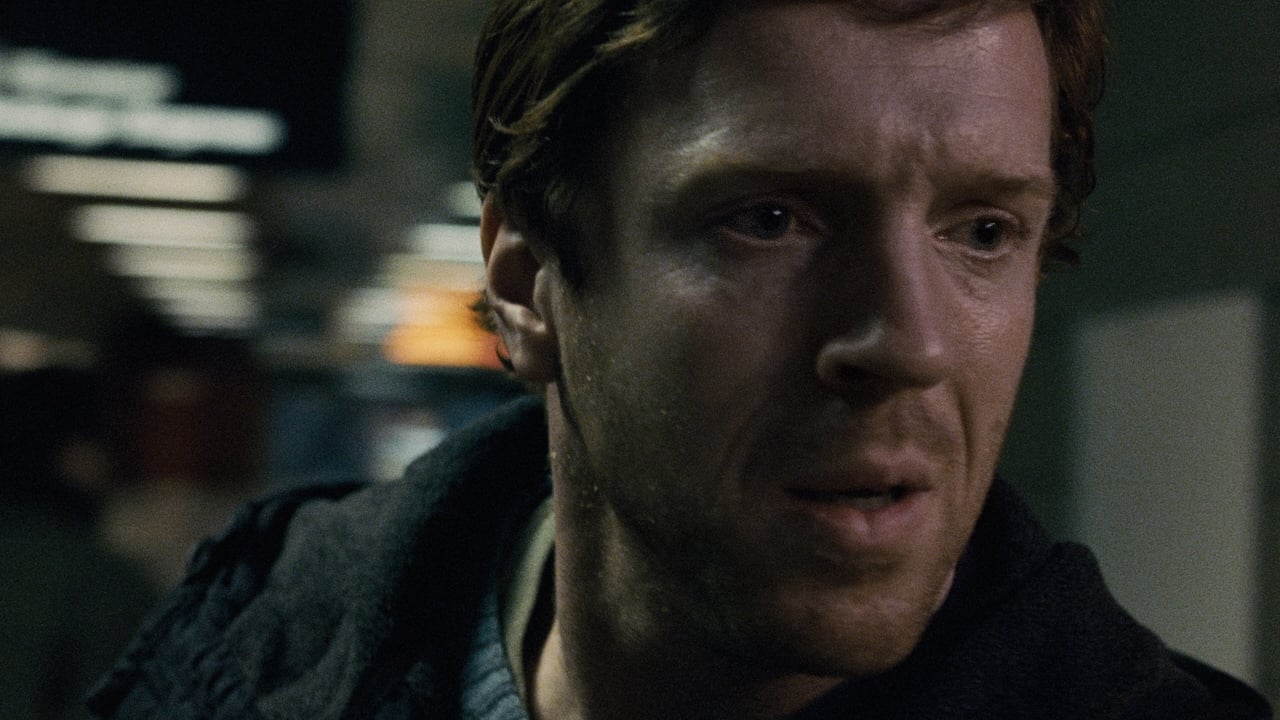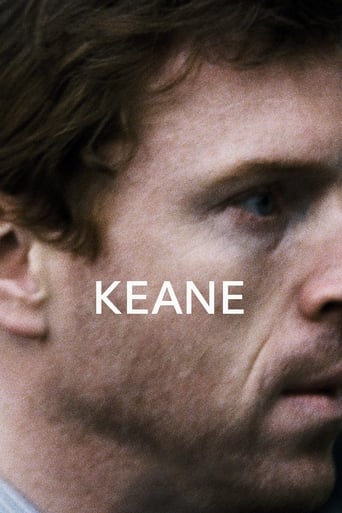ReaderKenka
Let's be realistic.
Tacticalin
An absolute waste of money
Freaktana
A Major Disappointment
Leoni Haney
Yes, absolutely, there is fun to be had, as well as many, many things to go boom, all amid an atmospheric urban jungle.
imdb2-5
My review will get panned as it's clear that many have had something to do with this film and thus the 7 rating. Good: The acting is very good. Breslin does a great job as a young child who isn't quite sure whether the neighbor is truly helping or abducting her. Lewis is also excellent, very believable and always his character. The script is compelling in the sense that it's a good idea for a story. Lewis does a very good job being scrutinized as the only person on screen. That's not easy.The Not So Good: The problem with the script is two fold. First, I had a hard time with credibility. You jump in to the film where a man who would be picked up by police quickly roams through a bus station. And the film is trying to pass off this "is he crazy or is he not crazy" question. But it is extremely exaggerated. And then this man, who appears to live barely day to day, also has a coke habit. It appears they are trying to portray the man as a schizophrenic but those don't know their other personalities. He's having a breakdown of sorts over a daughter he had and lost... although is it really the case? How about the woman he spoke to on the phone - or are we questioning whether she too is real? It sure seemed it to him during a lucid moment.The lame: I understand what the filmmakers wanted to do. But all of promise of this "rewarding final third" of the film is just predictable and also not quite realistic. Neither were the liberties taken by the mother, which I will not write here. And then the ending.... no, it's not clever. It's usually a decision made to not want to provide a proper ending to a story, the usual gobbledygook about questions, choices, etc. Please... I didn't invest 90 minutes because I thought that all you wanted to do was show me a performance piece.In the end, that's much of what this is - a low budget performance piece if you're up for that. They did a good job with what they have. And I will warn you now that you'll need complete patience to sit through this 90 minute film and realize that there isn't anything extraordinary statement made. It's more about the journey over a few days, if you believe it.
Brigid O Sullivan (wisewebwoman)
and having seem the film, still waiting.Well it did keep me on the edge of my seat for quite a while. A long while. Damian Lewis is a brilliant actor, his face conveys so much of the inner turmoil of a man, flirting with insanity, who has lost his daughter in a moment of carelessness in a New York bus station.Or has he? One never knows for sure. Tiny innuendos are offered along the way, but never quite enough.There is no follow-through of any of the tantalizing story lines.I was left to ponder the carelessness of a woman who would leave her daughter alone with so troubled a man, and not for a few hours either but overnight.There is some sort of resolution at the end where Keane's grief finally breaks through. But grief for what? I had to work very heard for very little return.5/10.
jzappa
Naturalism is so effective because it gives us the urgency and reality of a documentary, but it captures what would be unfeasible between a real person and a camera but a few inches from his face. Lodge Kerrigan's Keane opens with a man scouring the Port Authority Bus Terminal, searching for his lost daughter. He has a newspaper clipping he shows to people, who hustle along, perceiving insanity. The girl has been missing for weeks or months. It's not clear-cut. This quest has been part of the day-to-day life of the titular man, who then departs into a coarse street grind: An entire bottle of beer at one swig, vodka, cocaine, hookers, careless sex.Keane, like Peter Winter, the central figure of Kerrigan's Clean, Shaven, is a schizophrenic in search of his daughter. But Winter has a daughter. Did Keane have a daughter, did she vanish, is she even real? There is a vast distinction between the two films, created by the insistence on Keane's longing to take up in the world. He admonishes himself about looking decent to go on his search. He goes shopping for clothes for the missing girl. His periods of disorientation and careless disregard fluctuate with periods when he is silent and attempts to soothe himself and concentrate. The constant exhilarating energy of the heart of New York City makes this difficult for a man in his condition.Keane is played by Damian Lewis. Here he embodies a border of delirium that Kerrigan grasps with a feral compassion. There is no cause for us to buy that Keane, or allegedly his daughter, would be more fortunate if he found her. The camera eyes him without remorse, and his performance compels us because he depicts not despondent insanity but his urge to break away from his malignancies. It is entirely possible he did have a daughter, and she was kidnapped. There is always that dreadful prospect, but the movie remains diffident because in Keane's state, confronting hard evidence would surely kill him, shock him back to life and kill him again. Nevertheless, his memories of the final moments before his daughter's vanishing seem too striking and lifelike to be anything but agonizingly real.In a fleabag boarding house, he comes across a woman named Lynn played by Amy Ryan and her 7-year-old daughter Kira, a younger Abigail Breslin. They're poverty-stricken. Her husband has left them, perhaps to find a job, possibly to get out. Keane collects disability checks, and gives Lynn money, which she lacks desperately enough to take, particularly because he is at a quiet, tender stage, and doesn't want anything for it, or at least not anything she might not be inclined to give. Lynn can't pick up Kira after school. Will Keane meet her, bring her home, and look after her for a few hours? He will. They go to McDonald's. They go ice-skating. This Keane might have made a nice dad. Which Keane is it? What will transpire? The tension evolves not out of the child's peril, if she is in any, as our immediate feelings tell us. But the more time that overdrawing has to erode, we find it comes out of Keane's despair about himself. He has been going through a peaceful phase. He is scared of the burden he has abruptly accepted. Does he somehow mistake Kira for his missing daughter?Kerrigan's films construct realms of individual engrossment. Characters on the brink pursue children they believe will endow them with much-needed contentment. The substance of Keane frees Kerrigan to burrow numerous formalistic capabilities with film that are scarcely seen in more mainstream cinema. And they are immensely effective. The film was shot with a hand-held camera with single takes lasting up to five minutes with no cutaways. It contains extensive periods of little to no dialogue and has no musical score except the sounds of place, of confusion, of buses roaring to and fro. We see mostly obscure, unfamiliar and remote city streets, marginalizing poor Keane. The film means to be a shakingly sensory experience, and is.
info-17204
I didn't know what to make of this movie. I'd heard so much about the film, and was really looking forward to it. Being a film director, I'd just completed a short drama (Open Secrets) about mental illness, so was keen to see how this subject would receive the big screen feature length treatment.I found the protagonist's acting first rate, and was totally immersed in his realism. But I must admit I found the plodding narrative and sudden plot twists a bit strange. For instance, he exhibited all the manic behaviour of a typical bi-polar individual, then as soon as he met the lady with the young girl in the hotel, his behaviour became charming and sensitive. I've done a lot of research into mental illness for my short film, and I know that mental patients on a 'high' do not become "normal" by simply switching their illness 'off'. Mental illness is not something that can be flicked on and off randomly by the individual concerned and yet here I found that to be the case here. The protagonist would became crazed with mania, then suddenly in the next scene he would be contrite and mellow.Top marks to the film-makers though for a brave attempt at a difficult topic, though. The film looks beautiful, with great cinematography and editing. I felt that the script was where it could have been improved upon. Perhaps the actor's performance was improvised, in which case it was an excellent job, but still lacked narrative clarity. After about half an hour of viewing the film, I began to wonder whether I could last the entire length of the movie.As I mentioned, I have mixed feelings about this film. On the one hand I didn't really "enjoy" the film as it has a weakish story, but on the other hand the film is a landmark because there aren't many feature length dramas about mental illness, and this one was pretty good in many respects. Overall, I was glad to have seen the film on cable TV, and not paid to see it in a cinema, as I don't really think the film fully justifies paying a ticket price.

